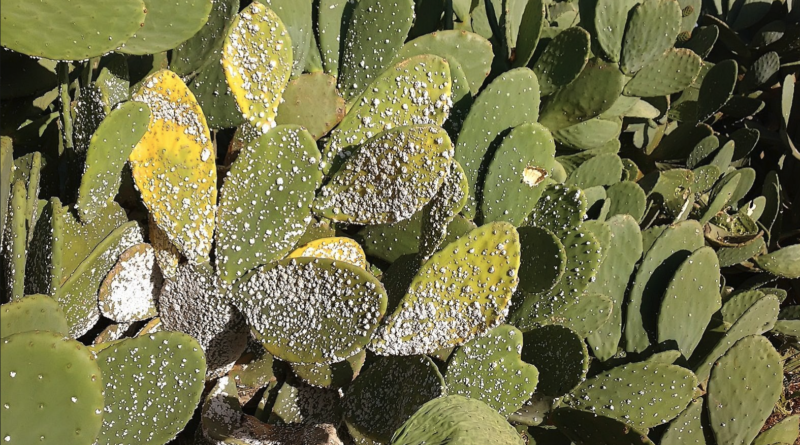The Insect Spreading And Threatening Tunisia’s Farmers
An insect is spreading and threatening Tunisia’s farmers livelihood by ravaging prickly pear plantations. This is posing a severe threat to the country’s agriculture sector and economy.
Farmers and agricultural experts are grappling with the destructive cochineal insect, scientifically known as Dactylopius opuntiae, which has been causing widespread damage since its discovery in Tunisia in October 2021.
The insect, initially discovered in Mexico and then Morocco in 2015, has now spread to Tunisia, devastating vast areas of plantations and causing significant economic concerns.
Impact on Agriculture
Prickly pears, covering approximately 600,000 hectares and representing about 12% of Tunisia’s agricultural land, are a critical source of income for thousands of farmers, particularly women who harvest and sell the fruit.
The cochineal insect sucks the sap from cactus pads, leading to yellowing and eventual death of the plants.
Government and International Response
The Tunisian government, in collaboration with international organizations, is implementing measures to mitigate the impact of the invasive pest. The Food and Agriculture Organization (FAO) has initiated a $500,000 emergency project to introduce biological control methods, such as using ladybugs, which are natural predators of the cochineal insect.
The Tunisian Ministry of Agriculture is also promoting sustainable control measures, including changes in agricultural practices, pruning, and cleaning in production areas.
Regional Context and Historical Background
The Maghreb region, including Tunisia and Morocco, has long relied on the cactus or prickly pear (locally known as Handia) as a vital source of food and feed. The plant thrives in arid zones with minimal water and heat tolerance, making it an ideal crop.
The fruit is not only a nutritious food source but also used to produce medicine and cosmetics. Additionally, the plant’s pads serve as valuable animal feed, especially in areas with scarce water and feed resources. Moreover, cactus pear plays a crucial role in soil and biodiversity conservation.
However, the recent invasion of Dactylopius opuntiae has wreaked havoc on cactus plantations in Morocco since its initial discovery in Saniat Berguig of Doukkala in 2014. The pest has spread rapidly, causing significant economic losses and devastating crops. The invasion has extended to Tunisia, exacerbating the challenges faced by smallholder farmers.
Future Outlook
The spread of pests and diseases in the region is a direct consequence of climate change, necessitating the development of sustainable and practical control options. Efforts are underway to develop environmentally sound and cost-effective measures to reverse the damage caused by the invasive pest.
It is crucial to find a solution that is sustainable and practical for smallholder farmers, who are among the most vulnerable to the impacts of climate change.



